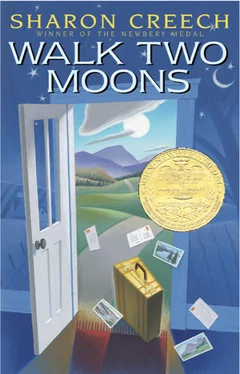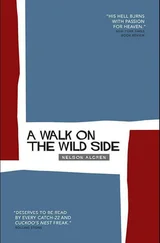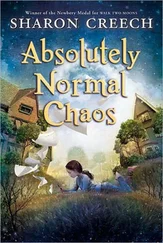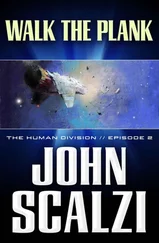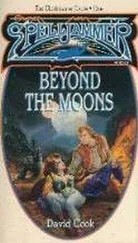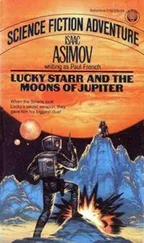Then the branch I stepped on snapped, and I grabbed out at another, but it was dead and came away in my hands. I fell down, down, as if I were in slow motion. I saw leaves. I knew I was falling.
When I came to, I was on the ground with my face pressed into the dirt. My right leg was twisted beneath me and when I tried to move, it felt as if sharp needles were shooting all up and down my leg. I tried to drag myself across the ground, but the needles shot up to my brain and made everything black. There was a walloping buzzing in my head.
I must have passed out again, because the next time I opened my eyes, the woods were darker and the air was cooler. I heard my mother calling. Her voice was distant and faint, coming, I thought, from near the barn. I answered, but my voice was caught in my chest.
My mother found me and carried me back through the woods, across the fields, and down the long hill to the house. She called my grandparents to come take us to the hospital. It took forever just to get a cast, and by the time we got home we were all exhausted. My father felt awful that he had been away and fussed over both of us constantly.
The baby came that night. I heard my father telephoning the doctor. “She won’t make it,” he said. “It’s happening now, right now.”
On my new crutches, I tottered down the hall. My mother was sunk into the pillow, sweating and groaning. “Something’s wrong,” she said to my father. She saw me standing there and said, “You shouldn’t watch. I don’t think I’m very good at this.”
In the hallway outside her room, I lowered myself to the floor. The doctor came. My mother screamed just once, one long, mournful wail, and then it was quiet.
When the doctor carried the baby out of the room, I asked to see it. It had a pale, bluish tinge and there were marks on its neck where the umbilical chord had strangled it. “It might have been dead for hours,” the doctor told my father. “I just can’t say exactly.”
“Was it a boy or a girl?” I asked.
The doctor whispered his answer, “A girl.”
I asked if I could touch her. She was still a little warm from being inside my mother. She looked so sweet and peaceful, all curled up, and I wanted to hold her, but the doctor said that was not a good idea. I thought maybe if I held her she would wake up.
My father looked shaken, but he didn’t seem concerned about the baby anymore. He kept going in and touching my mother. He said to me, “It wasn’t your fault, Sal—it wasn’t because she carried you. You mustn’t think that.”
I didn’t believe him. I hobbled into my mother’s room and crawled up on the bed beside her. She was staring at the ceiling.
“Let me hold it,” she said.
“Hold what?”
“The baby,” she said. Her voice was odd and silly.
My father came in and she asked him for the baby. He leaned down and said, “I wish—I wish—”
“The baby,” she said.
“It didn’t make it,” he said.
“I’ll hold the baby,” she said.
“It didn’t make it,” he repeated.
“It can’t be dead,” she said in that same singsong voice. “It was alive just a minute ago.”
I slept beside her until I heard her calling my father. When he turned on the light, I saw the blood spread out all across the bed. It had soaked the sheets and the blanket; it had soaked into the white plaster of my cast.
An ambulance came and took her and my father away. Gram and Gramps came to stay with me. Gram took all the sheets and boiled them. She scrubbed the blood from my cast as best she could, but a dark pink stain remained.
My father came home from the hospital briefly the next day. “We should name the baby anyway,” he said. “Do you have any suggestions?”
The name came to me from the air. “Tulip,” I said.
My father smiled. “Your mother will like that. We’ll bury the baby in the little cemetery near the aspen grove—where the tulips come up every spring.”
My mother had two operations in the next two days. She wouldn’t stop bleeding. Later, my mother said, “They took out all my equipment.” She would not have any more babies.
I sat on the edge of a gorge in the Badlands, looking back at Gram and Gramps and the pregnant woman on the blanket. I pretended that it was my mother sitting there and she would still have the baby and everything would be the way it was supposed to be. And then I tried to imagine my mother sitting here on her trip out to Lewiston, Idaho. Did all the people on the bus get out and walk around with her or did she sit by herself, like I was doing? Did she sit here in this spot and did she see that pink spire? Was she thinking about me?
I picked up a flat stone and sailed it across the gorge where it hit the far wall and plummeted down, down, careening off the jagged outcroppings. My mother once told me the Blackfoot story of Napi, the Old Man who created men and women. To decide if these new people should live forever or die, Napi selected a stone. “If the stone floats,” he said, “you will live forever. If it sinks, you will die.” Napi dropped the stone into the water. It sank. People die.
“Why did Napi use a stone?” I asked. “Why not a leaf?”
My mother shrugged. “If you had been there, you could have made the rock float,” she said. She was referring to my habit of skipping stones across the water.
I picked up another rock and sailed it across the gorge, and this one, too, hit the opposite wall and fell down and down and down. It was not a river. It was a hole. What did I expect?
As we were leaving the Badlands, Gramps swore at a driver who cut us off. Usually when Gramps cussed like this, Gram threatened to go back to the egg man. I don’t know that whole story, just that one time when Gramps was cussing up a storm, Gram ran off with the man who regularly bought eggs from Gramps. Gram stayed with the egg man for three days and three nights until Gramps came to get her and promised he wouldn’t swear anymore.
I once asked Gram if she would really go back to the egg man if Gramps cussed too much. She said, “Don’t tell your grandfather, but I don’t mind a few hells and damns. Besides, that egg man snored to beat the band.”
“So you didn’t leave Gramps just because of the cussing?”
“Salamanca, I don’t even remember why I did that. Sometimes you know in your heart you love someone, but you have to go away before your head can figure it out.”
That night we stayed at a motel outside of Wall, South Dakota. They had one room left, with only one bed in it, but Gramps was tired, so he said it would do. The bed was a king-size water bed. “Gol-dang,” Gramps said. “Lookee there.” When he pressed his hand on it, it gurgled. “Looks like we’ll all have to float on this raft together tonight.”
Gram flopped down on the bed and giggled. “Huz-huz,” she said, in her raspy voice. She rolled into the middle. “Huz-huz.” I lay down next to her, and Gramps tentatively sat down on the other side. “Whoa,” he said. “I do believe this thing’s alive.” The three of us lay there sloshing around as Gramps turned this way and that. “Gol-darn,” he said. Tears were streaming down Gram’s face she was giggling so hard.
Gramps said, “Well, this ain’t our marriage bed—”
That night I dreamed that I was floating down a river on a raft with my mother. We were lying on our backs looking up at the high sky. The sky moved closer and closer to us. There was a sudden popping sound and then we were up in the sky. Momma looked all around and said, “We can’t be dead. We were alive just a minute ago.”
In the morning, we set out for the Black Hills and Mt. Rushmore, hoping to be there by lunchtime. No sooner were we in the car than Gramps said, “So what happened to Peeby’s mother and did Peeby get any more of those messages?”
Читать дальше
